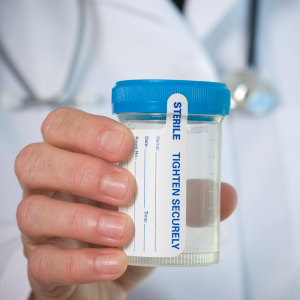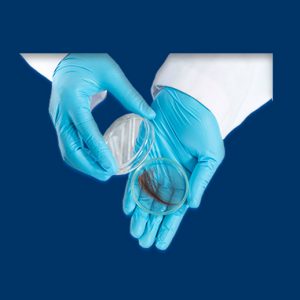
-
Specialty Drug Testing
Synthetic Drug Test
A urine drug test which screens for many common synthetic cannabinoids and synthetic stimulants. A urine drug test which screens for many common synthetic cannabinoids and synthetic stimulants. At least 15 states shave enacted legislation or taken administrative action to ban these cathinone designer drugs due to the significant number of hospitalizations and deaths attributed to their use. Recently, the US Drug Enforcement Administration (DEA) sent a request out to the scientific community for information on the pharmacology, toxicity, and abuse of these synthetic cathinones to support possible future scheduling.
$139.99 Order Now
-
Specialty Drug Testing
ETG Hair Test
ETG Alcohol Hair Test (appointment may be required)
$399.99 Order Now
-
Specialty Drug Testing
Heavy Metals Test
Heavy Metals Hair Test (appointment may be required)
$499.99 Order Now
-
Specialty Drug Testing
Unknown Toxin/Poison Hair
Unknown Toxins/Poisons Hair Test (appointment may be required)
$499.99 Order Now
What is a Specialty Drug Test?
A specialty drug test follows the majority of the same guidelines for a standard drug test, but what makes them a specialty drug test is that the specimen requires analysis at a specialized lab or analysis utilizing a specialized method. Drug testing is defined as the evaluation of a urine, blood or other type of biological sample which is used to determine if an individual has been using the drug or drugs in question. This definition also applies to the specialty drug testing options that are available in the industry.
What are some types of specialty drug tests?
Although there are several options for drug testing, we are going to outline the most common specialty drug testing solutions available to employers or individuals Nationwide.
Listed below are the most common specialty drug tests available:
• ETG Alcohol Hair Test
• Drug-Facilitated Sexual Assault Panel (aka “date rape” or “club” drugs)
• Heavy Metals exposure test
• Unknown Substance Analysis
• Unknown Poison and toxin analysis
• Limit of detection (LOD) Drug Test
What is an ETG Alcohol Hair Test?
The alcohol hair test provides an indicator of a behavioral use issue and should not be used to measure current impairment or intoxication. If you are needing to test to measure for impairment we would recommend a breath alcohol test or alcohol blood test.
An ETG alcohol hair test measures the average alcohol consumption of an individual over a period of approximately three months. This test indicates the level of alcohol use during that approximate time frame and can indicate a pattern of excessive use typically indicating a behavioral issue rather than an isolated event.
The test measures the amount of ethyl glucuronide (EtG) in the hair – a trace metabolite of ethanol and a direct alcohol biomarker. The guidelines set forth by the World Health Organization in association with the Society of Hair Testing for measuring consumption which can be described as follows:
The testing can identify those consuming as few as 1 or 2 drinks on average per week (low to moderate consumption) and excessive consumption (30pg/mg +) is an avaerage of 4-6 drinks per day – consumed over a 3 month period.
What is a limit of detection drug test?
The standard in method of analyzing drug tests is to utilize cut-off levels. Limit of Detection means reporting any detectable amount of drug. The Limit of Detection (LOD) is typically defined as the lowest concentration or quantity of a particular substance that can be reliably distinguished with a specific analytical method.
Can I find out if a person used drugs on a month-by-month time-frame through hair testing?
Yes, there are specialized laboratories that offer this type of test by requesting your hair sample to be segmented. Segmentation of hair must be specified on the chain-of-custody form and may incur additional charges.
For example, if a client or individual wishes to evaluate the last three (3) months for drug use but wants to evaluate each month separately, the following segmentation options are available:(0-30), (31-60), (61-90), these numbers refer to the detection window represented by a range of days in the month. It is important to understand that segmentation cannot pinpoint a specific day of use but it will provide a result for a 30 day segment.
What is a Drug-Facilitated Sexual Assault Panel specialty drug test (aka “date rape” or “club” drugs)
“Date Rape” drugs are hypnotics, sedatives and other types of medications that cause a person to have lapses in memory; loss of motor control, consciousness and/or inhibitions; and slurred speech. Many times the pills are slipped into beverages. When mixed with alcohol, the affect of these drugs intensify.
Testing Specimens may include:
• Blood (up to 5 hours after ingestion)
• Urine (generally 3 to 5 days after ingestion)
• Hair (collected 10 – 14 days after the incident minimum)
• Suspected glass or container in which the alleged drug was placed
Can I be tested for Heavy Metals Exposure specialty test?
Certain heavy metals are essential to good health, such as selenium and magnesium. The term “heavy metals” also includes arsenic, hexavalent chromium (chromium-6), lead, cadmium and mercury, to name a few. You can get too much of a good thing and with heavy metals, it can be toxic.
What makes a person more susceptible to heavy metal exposure?
Working in certain positions and industries, including but not limited to:
- Welding/Grinding
- Commercial and Industrial Painting
- Smelting
- Oil and Gas Refining
- Electroplating
- Aircraft Production
- The Military
- The environment
- Exposure to lead-based paint or lead pipes
- Smokers
- People with certain liver or blood diseases
Is there a specialty test that will identify unknown substances?
An unknown substance analysis is performed when a person finds a pill, powder or other substance that they suspect is a drug, or an unknown stain or specimen that needs to be identified as biological or not.
What is an Unknown Poison and Toxin Analysis?
Following the same methodology outlined within the unknown substance scan/analysis, our affiliated labs test for unknown chemicals, poisons and toxins that include but are not limited to:
- pesticides,
- organic exposure chemicals,
- painting/cleaning type products,
- rat poison,
- volatiles (blood only) and
- inhalants (blood only).
Note this particular analysis does not screen for drugs or heavy metals.
Is there a specialty drug test for vaping?
Yes, our specialty lab can measure the following items if you need to determine if an employee or individual is smoking an electronic cigarette.
- Nicotine,
- Cotinine,
- Propylene Glycol,
- Glycerol, and
- flavorings.


